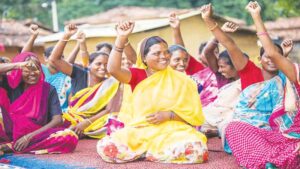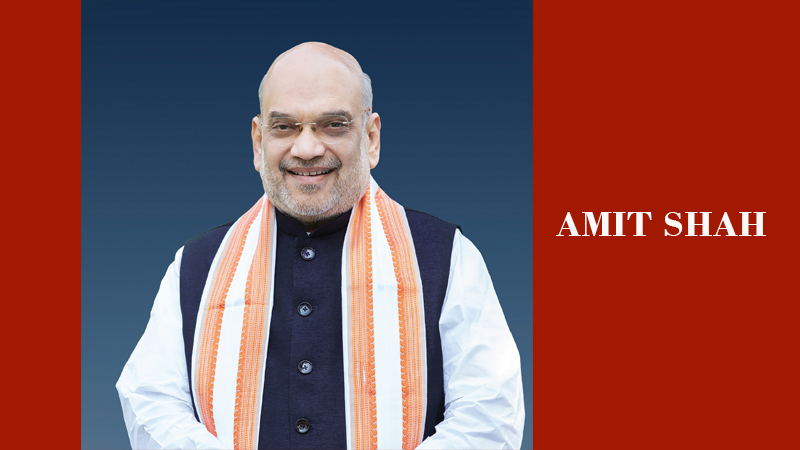In the Vedic era, a period of profound intellectual and spiritual emancipation, rishikas made significant contributions to the evolution of thought and wisdom.Gargi Vachaknavi, a philosopher of that period, is widely cited for her nuanced debates on the nature of reality and the soul, with sage Yajnavalkya
Bharat is a nation empowered by women. Their care, compassion, and ingenuity have not only shaped individuals and our society but also the edifice of our glorious cultural heritage.
In the Vedic era, a period of profound intellectual and spiritual emancipation, rishikas made significant contributions to the evolution of thought and wisdom.Gargi Vachaknavi, a philosopher of that period, is widely cited for her nuanced debates on the nature of reality and the soul, with sage Yajnavalkya. The erudite Maitreyi’s understanding of Upanishads still guides scholars, and Yami was an early proponent of the concept of ‘dharma’, which still resonates in Indian society.
The strides made by women in science, space exploration, and healthcare have made the world look at India with admiration in the present era. More than 80% nurses and midwives in India are women, who rendered unforgettable service as the first line of defence during the pandemic.
PM Modi, in his address to the G20 ministerial on women empowerment, highlighted the transformative role women have played in various fields. He laid the future trajectory for the nation and said, “In India, we are not limited to women’s empowerment. Ours is a women-led development.”
However, despite their proven transformative potential, women’s political
PM Modi, in his address to the G20 ministerial on women empowerment, highlighted the transformative role women have played in various fields. He laid the future trajectory for the nation and said, “In India, we are not limited to women’s empowerment. Ours is a women-led development.”
participation remains few and far between, globally. Bharat needs the unfettered contribution of women in policy and law-making to shape the nation the way PM Modi envisions in Amrit Kaal.
The role of the women’s reservation bill comes into play in this particular vision of the PM. The bill, which paves the way for reservation of 33% of seats for women in Parliament and state assemblies, will unleash a new era of inclusive governance undoing major hindrances to their participation.
However, the context of the bill has to be understood along with its historicity. Rather than an isolated step, it is part of a structured effort to empower women in every strata of society.
In the last nine years, PM Modi has been a vocal advocate and a proactive mover of women-led development. Initiatives like Beti Bachao-Beti Padhao have improved sex ratio at birth and increased enrolment of girls in educational institutions.
Scholarships provided by the Modi government have also been integral in ensuring quality education for girls.
Schemes like Pradhan Mantri Sukanya Samriddhi Yojana and Pradhan Mantri Jan Dhan Yojana have significantly contributed to the financial security and inclusion of 30 crore women. Collateral-free loans through Mudra Yojana have empowered 40 crore women to capitalise on their entrepreneurship prowess.
In fact, the nine years of the Modi government have been a tribute to womanhood. The dispensation has not only catered to socio-economic needs of women but also to their sensibilities by insulating them from the pangs of destitution through a well-structured welfare mechanism.
When families can’t afford necessities like food, a home, medicines, and potable water, it is the woman in the family who is pained the most. The Modi government has shielded them from the scourge of poverty by providing 2.9 crore poor women homes, with proprietary rights, food grains to 80 crore poor, 11crore water supply connections, and health insurance to 50 crore beneficiaries.
The 9.6 crore gas connections issued by the Modi government under the Ujjwala scheme rids poor women of domestic pollution that causes many prolonged illnesses.
With the Maternity Benefit (Amendment) Bill, 2017, the dispensation provided comforting relief to working women by increasing the maximum period of paid maternity leave to 26 weeks. Dismantling established gender stereotypes, the Modi government made women officers in the army eligible for permanent commission for the first time in history.
On account of these disruptive changes ushered in by the PM, today India has women fighter jet pilots for the first time in its history. It is also for the first time in our nation’s history that15% of seats for pilots in cockpits of commercial flying machines are occupied by women, when the global record is merely 5%.

All such milestones reached in the last nine years in facilitating a transformative change in the lives of 50% of the nation’s population remind me of the proverbial saying, ‘Where there is a will, there’s a way.’
The 9.6 crore gas connections issued by the Modi government under the Ujjwala scheme rids poor women of domestic pollution that causes many prolonged illnesses
Sadly, glaring issues in the lives of this vast population hardly ever occupied centre stage in the nation’s political discourse earlier. There was no dearth of seasonal lip service from Congress during electioneering. But the apathy was laid bare once election season was over. There was no reluctance on the part of Congress to walk out from Parliament when the fate of millions of women was being decided through the debate on triple talaq. The party’s decision not to support the candidature of Droupadi Murmu in the last election for the highest constitutional post in India and rather attempting to foil her victory by throwing its support behind the opposition candidate, was a clear enough hint that women empowerment was never on its agenda.
In stark contrast, the Modi government’s success in converting the long-pending bill for women’s reservation into legislation is a formidable example of its iron-willed commitment to the same.
Globally, the active participation of women in government has enhanced the legitimacy of emerging institutions, reduced corruption, and promoted consultative policymaking. Countries with high female representation in parliament, like the Nordic nations, have carved imitable paths in this direction. India, too, must prioritise gender equality and social inclusion through equal representation.
With the women’s reservation bill, PM Modi has aptly laid the robust foundation of a more inclusive parliamentary democracy in Amrit Kaal where women are heard more, and their issues are debated with more vehemence.
(The writer is the Union Minister of Home and Coopration, GoI)


